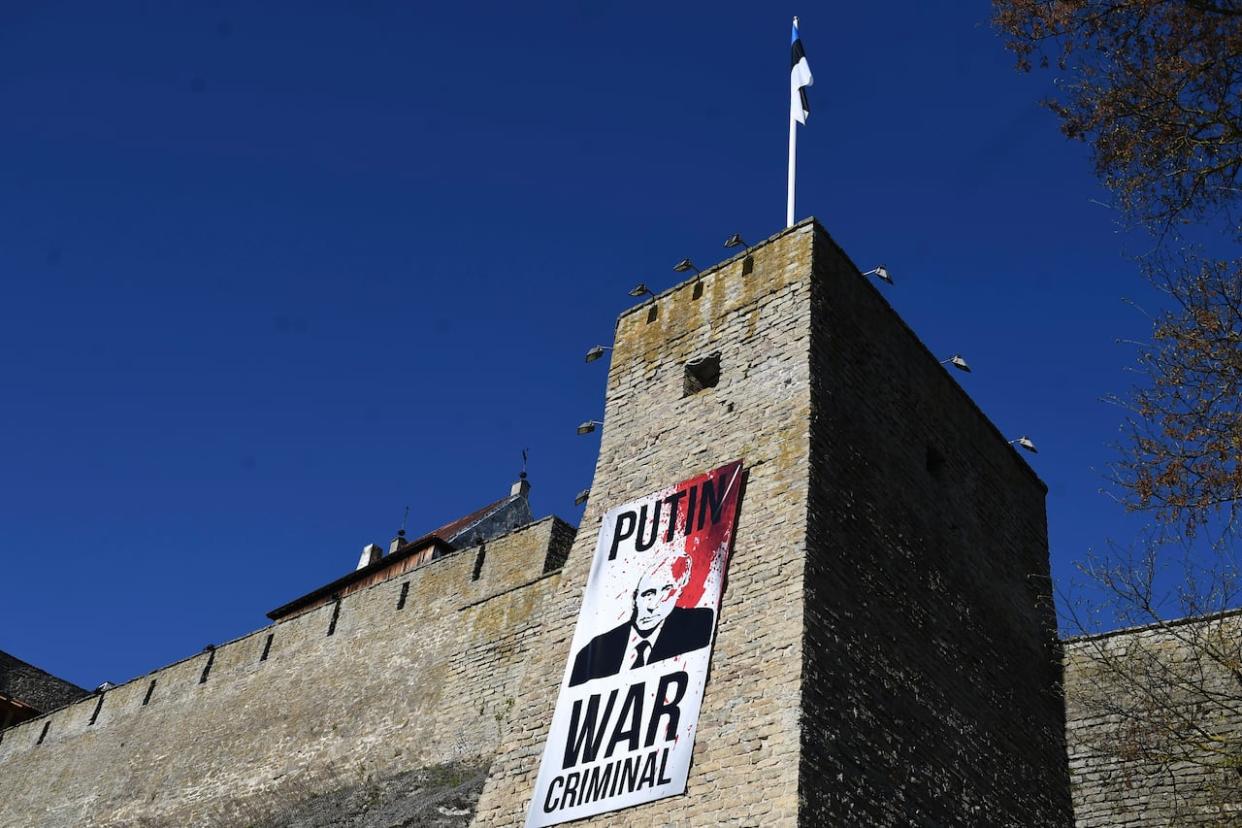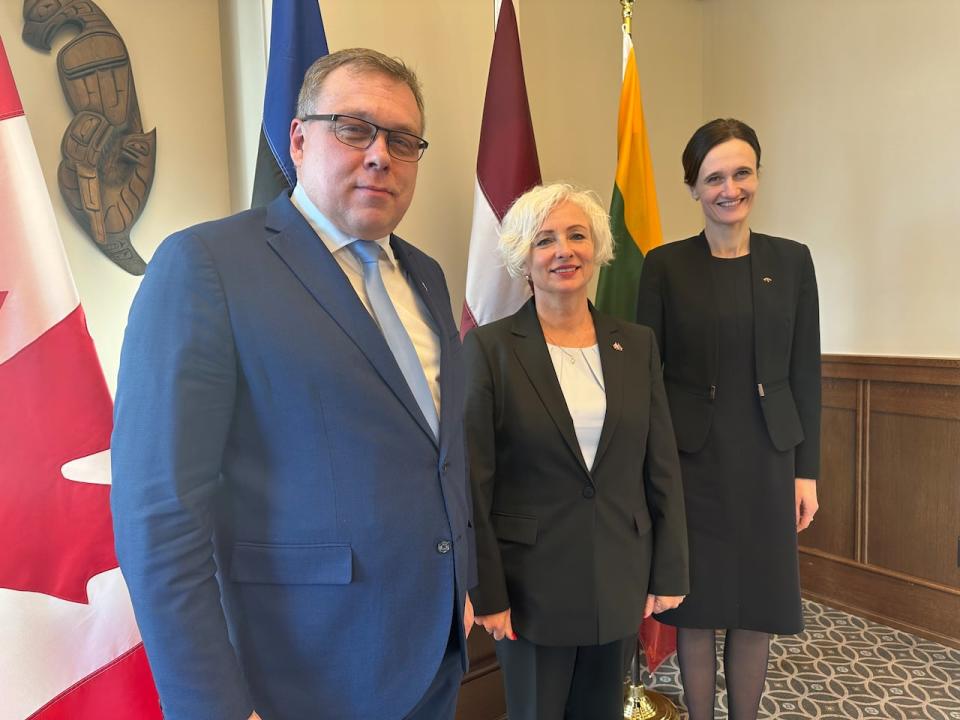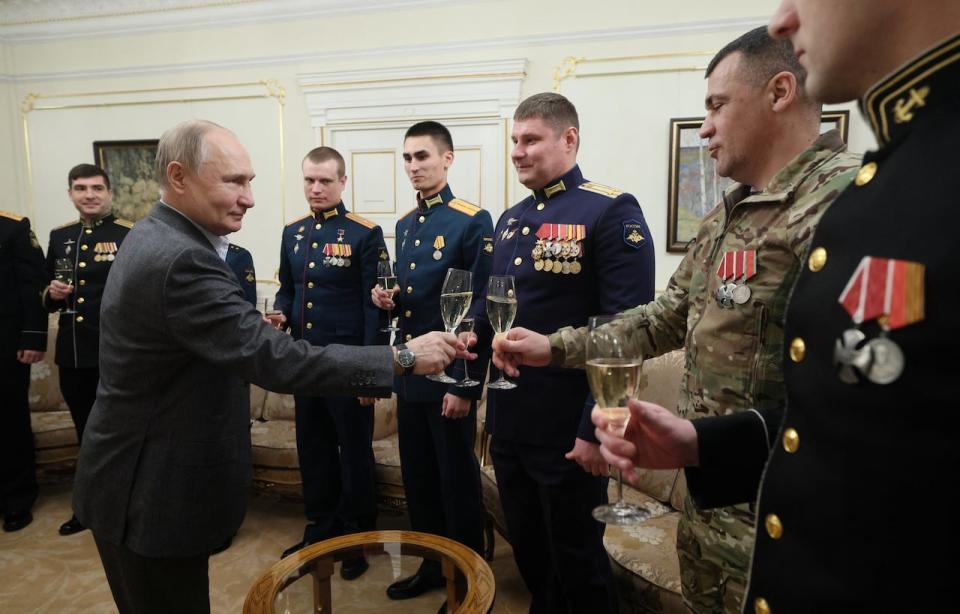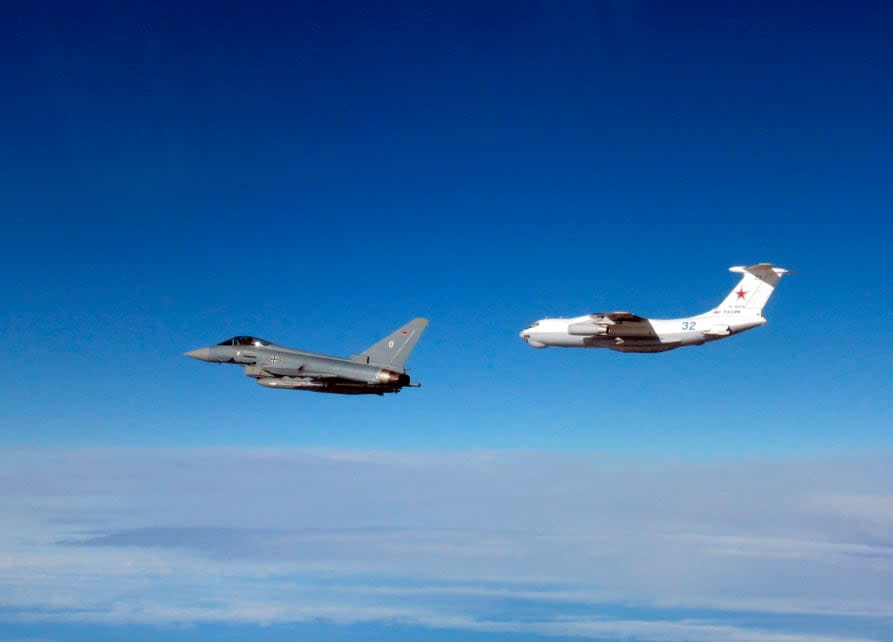As Europe's armies brace for war, allies call on Canada and others to catch up

In Estonia, they're talking about building more public bomb shelters and making them mandatory in all newly constructed homes.
In neighbouring Latvia, the government is going through the second draft of mandatory military service legislation. Next door in Lithuania, there's talk of universal conscription.
"I understand that when we speak from the Baltic perspective, it might sound somewhat dramatic and shocking," Viktorija Cmilyte-Nielsen, the speaker of the Seimas, Lithuania's legislature, told CBC News Monday in Ottawa.
"It is obvious that today, democracy itself, democratic countries, democracies all around the world are under pressure from Russia and its autocratic allies."
Since the beginning of 2024, security warnings in Europe about Russia's future intentions have been landing fast and furious.
And they've come in different forms and from different officials — many of whom are known best for their discretion and lack of hysteria.
These warnings are being driven in part by Russia's stated plans to put defence and munitions production on a war footing — something western nations, and Canada in particular, have struggled to accomplish in their efforts to bolster Ukraine's defence against Russia's invasion.
Many observers wonder whether the security warnings are even being heard by Ukraine's allies, especially Canada and the United States.
Two weeks ago in Sweden, a political debate erupted after the country's two top defence officials warned that war could be on the horizon. Sweden's Civil Defence Minister Carl-Oskar Bohlin and its military commander-in-chief Gen. Micael Byden said people should prepare mentally for the possibility — and begin stocking up on supplies.
A land war in Western Europe?
The head of the British Army, Gen. Sir Patrick Sanders, said in a recent speech that the United Kingdom should train a "citizen army" and be ready to fight a war on land in the future.
Three parliamentary speakers from the Baltic nations of Latvia, Estonia and Lithuania are the latest to deliver fresh warnings about how prepared western nations are for the prospect of an even bigger conflict in Europe.
They visited Ottawa on Monday and met with senior government officials before heading to Washington for more meetings.

Lauri Hussar (left), speaker of the Estonian legislature; Daiga Mierina, speaker of the Latvian parliament and Viktorija Cmilyte-Nielsen (right), speaker of the Lithuanian legislature visited Ottawa on Monday, Jan. 29, 2024 to meet with senior Canadian government officials. (CBC News)
Daiga Mierina, the speaker of Latvia's legislature, said that because Baltic nations were occupied by the Soviet Union, they have a decidedly more visceral approach to the threat posed by the Kremlin and can "very clearly see what we can expect from Russia.
"We understand Russia differently."
The speaker of Estonia's legislature said building up public resilience in western nations starts with understanding that an information war is already underway.
"This is really important in a moment because it's full-scale war and [that's what] underlies the online attacks in social media and elsewhere," said Lauri Hussar.
Whether these warnings are registering in western countries is debatable. Opposition politicians in Sweden described the warning from the defence chief as alarmist.
Former Swedish prime minister Magdalena Andersson told Swedish TV that while the world's security situation is serious, "it is not as if war is just outside the door."
Since many defence experts say the professional Russian Army that started the war in Ukraine has been virtually destroyed, there's a kernel of truth to Andersson's argument.

Russia's President Vladimir Putin attends a meeting with service members involved in Russia's war on Ukraine at the Novo-Ogaryovo state residence outside Moscow, on January 1, 2024. (Kristina Kormilitsyna/Reuters)
But Moscow has an ambitious rebuilding plan. Russia's military spending in 2024 will increase to 7.1 per cent of its gross domestic product (GDP) and will account for 35 per cent of total government spending, according to the Stockholm International Peace Research Institute.
What's needed in the West, in addition to ramped-up production, is a shift in mindset, said Dutch Admiral Rob Bauer, chair of NATO's Military Council.
"I think a nation needs to understand that when it comes to a war, as we see in Ukraine, it is a whole-of-society event," Bauer said recently following a meeting of NATO chiefs of defence staff.

Ukrainian women assemble military drones at the drone manufacturer Atlas Aerospace in the capital Riga, Latvia, Wednesday, Feb. 1, 2023. (Sergei Grits/AP)
The West, he said, has for decades been labouring under the belief that "the professional military ... would solve these security issues that we had in Afghanistan in Iraq."
That approach isn't good enough any longer, he said.
"You will need more people from society to sustain the military in terms of people," he said. "You need the industry to have enough ammunition to produce new tanks, new ships, new aircraft, new artillery pieces. All that is part of this discussion of a whole-of-society event.
"I think more people need to understand it's not just something of the armed forces and money. We need to be readier across the whole spectrum."
When asked about the recent comments in Sweden during an interview with CBC News last week, Defence Minister Bill Blair said the rising alarm in Europe is totally understandable, given the proximity to the threat.
He insisted Canadians understand that their way of life, and the rules under which western nations have operated for decades, are at stake.

In this handout photo provided by Britain's Ministry of Defence, British and German air force fighter jets are scrambled to intercept a Russian aircraft flying close to Estonian airspace on Tuesday, March 14, 2023. (Ministry of Defence via AP)
"We've always been a country that stood up [for] those rules and those principles and we're going to continue to do so," Blair said.
But do Canadian leaders truly share that sense of urgency felt across much of Europe?
Last fall, a House of Commons committee heard about a critical shortage of artillery ammunition, notably the NATO standard 155 millimetre shells. Unlike its allies, Canada has not signed an agreement with munition-makers to radically boost production.


